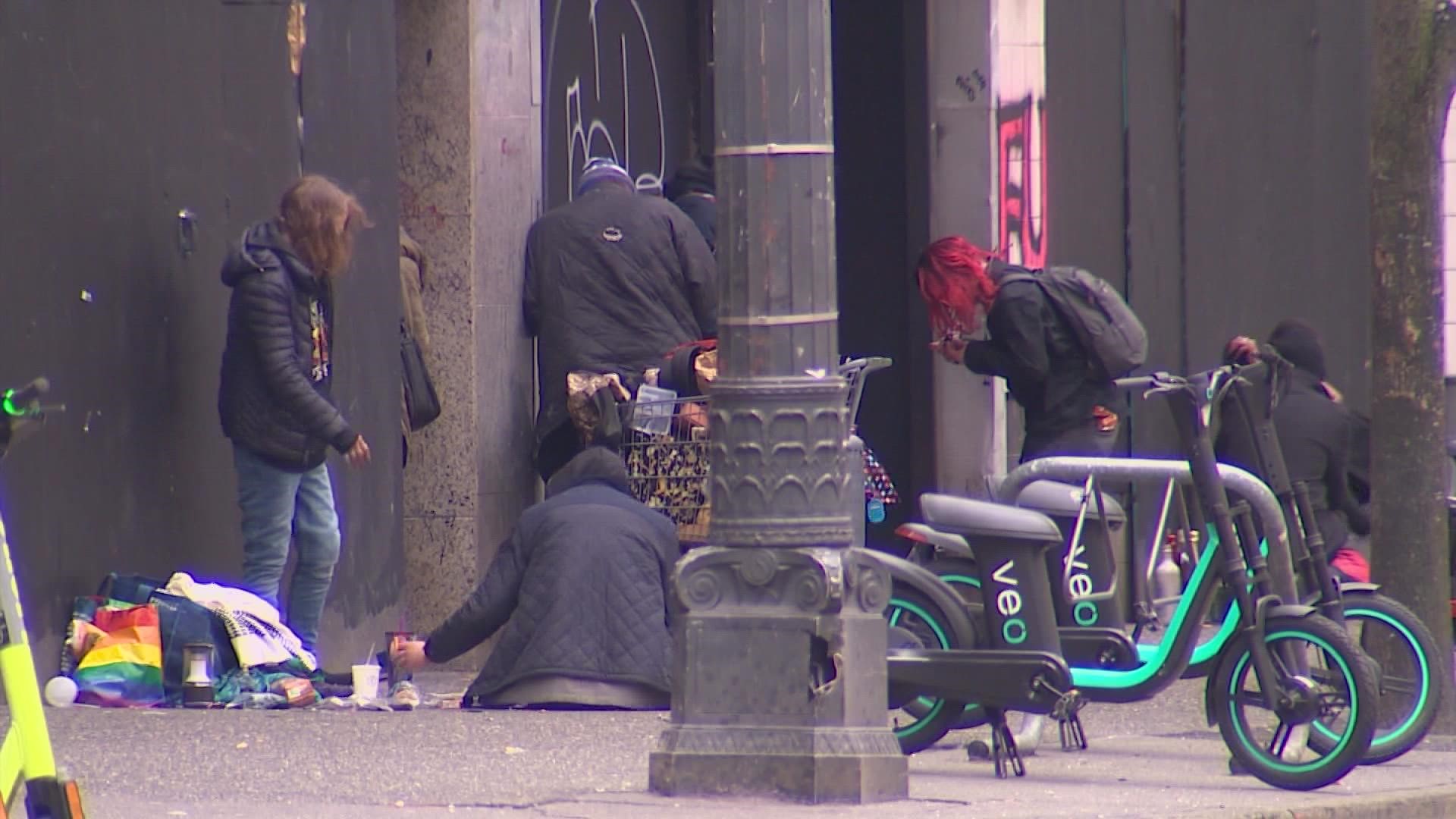SEATTLE — A new approach to help end homelessness in downtown Seattle and throughout King County is being announced Thursday through a public-private partnership involving some of the region’s largest companies.
Seattle, King County Regional Homeless Authority (KCRHA) and the advocacy coalition We Are In revealed companies like Alaska Airlines, Amazon, Boeing, Starbucks and T-Mobile along with philanthropy groups like the Ballmer Group and the Bill & Melinda Gates Foundation gave the county more than $10 million to fund the “Partnership for Zero.”
The new partnership will work under KCRHA and establish a so-called Unified Command Center with representatives from various groups dedicated to homeless response. The center will have authority over resources and be able to facilitate coordinated emergency response in the partnership’s target areas.
“Solving homelessness, especially chronic homelessness, is not an easy task; the problems we are trying to solve reached this level because of years of inattention and underfunding,” said Marc Dones, CEO of KCRHA in a statement. “It requires time and focus to do it right — peoples’ lives depend on it — and this partnership is designed to work in a different way than what has been done before.”
The partnership will work in five phases. First, the establishment of the command center. Second, the development of a “by-name list” that will include important information about who is unsheltered and what their needs are.
In a release describing the program, the list is explained as a tool that relies on relationships between unsheltered individuals and outreach workers.
Third, the partnership will develop case planning and service matching resources. The biggest part of this phase will be KCRHA’s hiring sufficient staff to care for those navigating these services. This will include 15 incident responders and up to 30 peer navigators who will be there to help each homeless individual in the system every step of the way toward permanent housing.
In the fourth phase, KCRHA plans to conduct the majority of housing and shelter placements as outreach workers are able to establish trust and help place unsheltered individuals in either shelters or housing.
In the final phase, KCRHA will look to maintain the necessary infrastructure to respond to any new individuals living unsheltered in the target areas.
“With Partnership for Zero, we are building a homeless response system that is co-architected by those most impacted. This human-centered approach to homelessness treats people experiencing homelessness as people, meets them where they are, and gets them the resources they need,” said LaMont Green, Chair of the state’s Lived Experience Coalition.
For downtown Seattle, a release from We Are In said it expects to reach the final phase in the partnership’s plan "as fast as 12 months," but the group sees some potential delays depending on how soon the command center can be developed as well as the availability of new housing and shelter not yet online.
Seattle Mayor Bruce Harrell released a statement that read in part, “The work ahead is by no means easy, but this is the kind of cooperation envisioned in the creation of the Regional Homelessness Authority and in my calls for public-private-philanthropic teamwork. Helping people experiencing homelessness get off the streets of downtown Seattle and into housing with services is an essential priority for my administration; Partnership for Zero is a bold plan of action to make progress possible – and permanent.”

